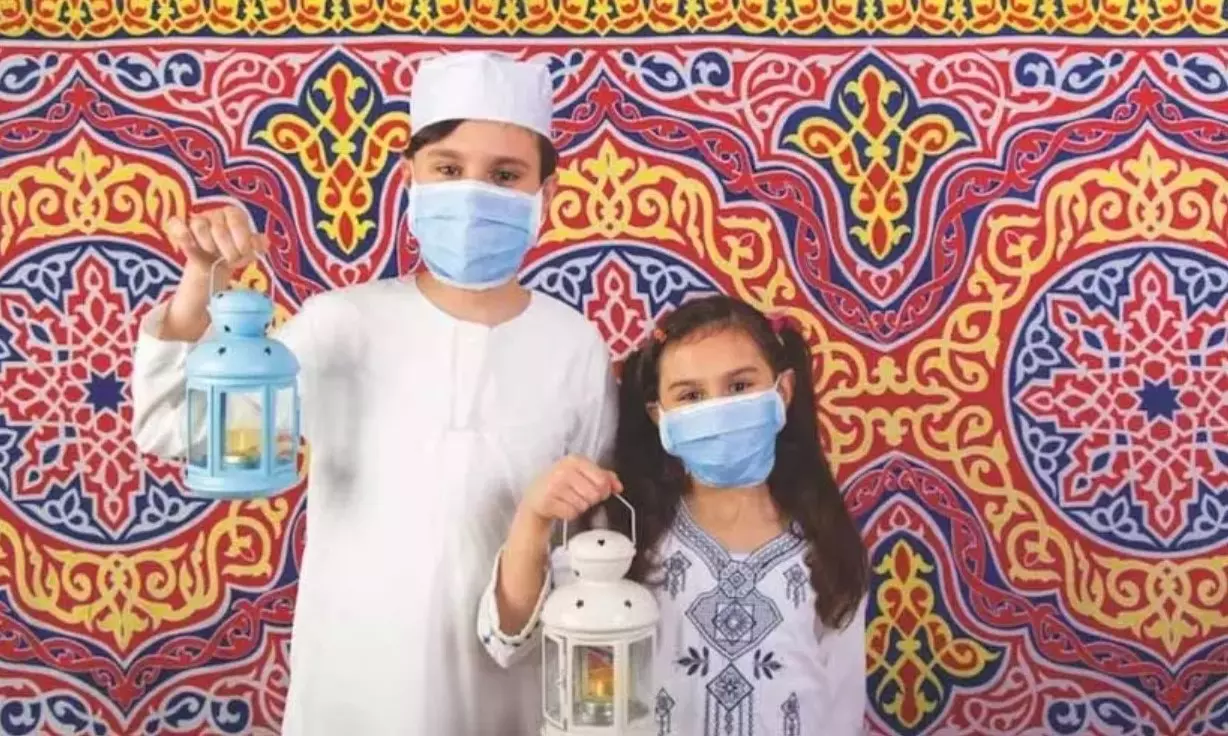
Saudi Families welcome Ramadan with fervour
text_fieldsSaudi families, like devotees worldwide, are gearing up for the second Ramadan during the pandemic era. Muslim devotees are delighted to have access to mosques even under stringent measures as they were kept away from mosques during the last Ramadan.
Families have been flocking into mosques in the wake of relaxations in entering mosques. Children are relieved to attend prayers in the mosques as Taraweeh, special night prayers of Ramadan, have been shortened. However, children aged below 15 are not permitted to enter the Prophet's Mosque (Al-Masjid an-Nabawi) or its courtyard this Ramadan.
Houses are seen hanging fanoos or conventional lights as a token of joy for eased covid-related restrictions. Hanging fanoos in front of houses is a custom followed for decades during Ramadan. Adults give away these lights as a souvenir to children. Special Ramadan stores and programmes are now illuminated with fanoos, which was not a sight during last year's Ramadan.
Even though a respite to covid measures is a boon, believers still miss the public iftar and social Ramadan gatherings, which are banned for the sake of curbing the spread of the pandemic in the country. Authorities have cautioned against sharing or distributing meals at any mosque courtyards.
The Saudi ministry urges all to follow the devised Ramadan action plan, which includes reducing the time of Taraweeh prayers to half, closing the mosque within 30 minutes after Taraweeh and not granting permission for i'tikaaf (spending days for worship in mosques).
During Ramadan, Saudi authorities also decided to raise the operational capacity of the Grand Mosque in Makkah by permitting around 100,000 worshippers to pray inside the mosque premises. 50,000 pilgrims with permits are being allowed to perform Umrah since Ramadan 1.























